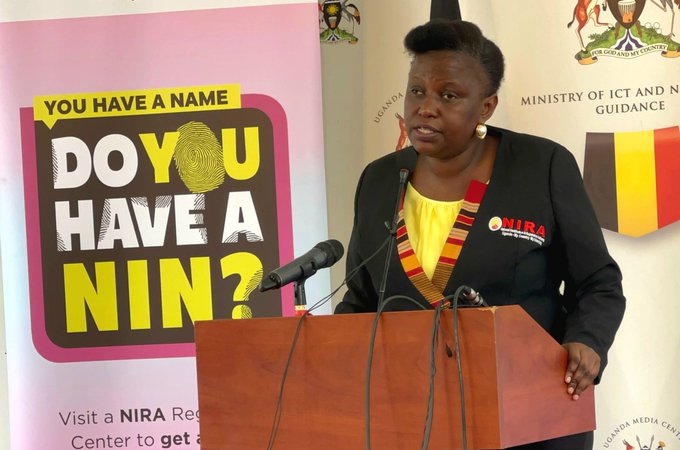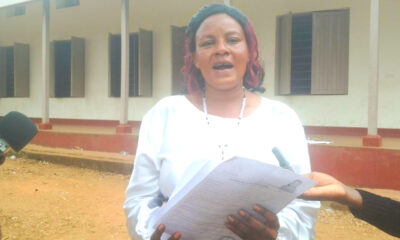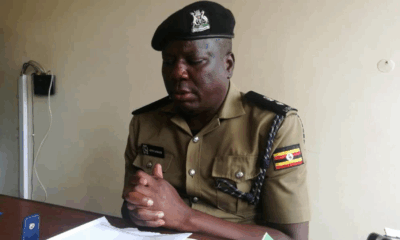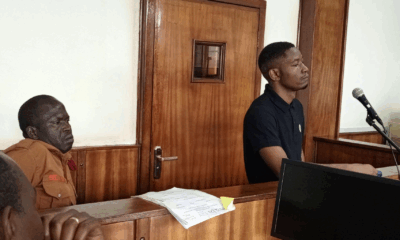News
NIRA Assures Seamless National ID Renewal and Registration Exercise Starting May 27
The National Identification and Registration Authority (NIRA) has issued a strong reassurance to Ugandans, promising a smooth and efficient rollout of the country’s most ambitious digital registration and ID renewal exercise. Starting May 27, 2025, NIRA aims to renew the expiring National Identification Cards of 15.8 million citizens and register an additional 17.2 million individuals for the first time.
Speaking to the press on Wednesday, NIRA Executive Director Rosemary Kisembo emphasised the crucial role of citizen cooperation in ensuring the success of this nationwide undertaking. “The key role of all citizens is to present themselves at the nearest registration point with the required documentation and register or renew their IDs,” she stated. She further urged the public to actively mobilise their families, including infants, children, and the elderly, to participate in the exercise.
The registration and renewal process will be decentralised, with operations taking place across 10,594 parishes nationwide. While renewals and first-time registrations will be handled at the parish level, citizens seeking to change their personal details will need to visit the District NIRA offices.
In a significant move towards digitalisation, NIRA announced that individuals seeking to renew their IDs or register for the first time will have the option to initiate the process online through a pre-registration portal set to go live on May 27. For those renewing their expiring IDs, providing their National Identification Number (NIN) will be a key requirement. “To renew your ID you only show up and provide your name, NIN, and expiry date of the card. If you have the physical card the better,” a NIRA official explained.
Executive Director Kisembo detailed the operational structure at each parish, highlighting the pivotal role of Local Council 1 (LC1) chairpersons. “The parish (Muluka) will be the heart of operations during Mass Enrolment and Renewal Exercise,” she emphasised. LC1 chairpersons will identify and recommend citizens, mobilise their communities, communicate registration schedules, and guide household registration for vulnerable groups under special programs like SAGE.
The new generation of National IDs will incorporate advanced biometric features, including fingerprints and iris scans. Furthermore, the upgraded IDs will support a wide range of functionalities such as online and offline verification, digital signatures, secure credentials access, eGovernment service support, physical authentication, and compatibility with all leading mobile and tablet platforms, including Mobile ID.
The mass enrollment and renewal drive is expected to benefit over 33 million Ugandans. This includes the 15.8 million whose current National IDs are set to expire by June 2025, and an additional 17.2 million citizens who have never been registered.
State Minister for Internal Affairs Gen. David Muhoozi recently conducted a physical test of the systems, expressing confidence in the readiness for the national rollout. “The pilot phase, which began on May 2 and ends on May 26, allowed us to test systems, equipment, and procedures. We are now ready to commence full operations across all 146 districts starting May 27,” Minister Muhoozi affirmed.
He also outlined the fees associated with specific services: ID card renewals and new registrations will be free of charge, while changes or corrections of particulars will cost UGX 200,000, and replacement of lost cards will be UGX 50,000.
Applicants will be required to present valid identification documents. For renewals, an original or copy of the expired ID or a police letter for lost cards is necessary. First-time applicants must provide documents proving parentage or ancestral ties and may require certification from local authorities.
Minister Muhoozi stressed the importance of timely and truthful participation from all Ugandans. “We urge all Ugandans to participate actively and truthfully in this exercise. Identity is central to planning, security, and service delivery. We are committed to ensuring no one is left behind.”
The government aims to complete the renewal process before the statutory extension on expired IDs ends on August 12, 2025. NIRA officials anticipate that initial ID processing will take up to four weeks but will reduce to two weeks as the systems become more stable.
Finally, Minister Muhoozi cautioned citizens with existing National Identification Numbers (NINs) against registering again, advising them to utilise the “Change of Particulars” service if any updates are needed to their information. NIRA’s proactive communication and the outlined decentralised approach aim to ensure a smooth and successful national ID renewal and registration exercise, benefiting millions of Ugandans.
Comments

























